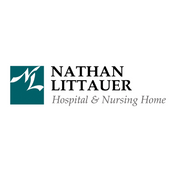A Guide to the Differences In Heart Attacks for Men & Women

A large part of adult medicine is monitoring and mitigating the risk of heart attacks. For you to do so effectively, it may help to know that there are differences in men’s and women’s health in regards to heart attacks, from risk factors to symptoms. Use the guide below for more information.
Risk Factors
For both men and women, risk factors for heart attacks include smoking, obesity, inactivity, high blood pressure, high cholesterol, inflammatory diseases, and a family history of heart disease. However, in men, the risk for heart disease can begin to increase as early as age 45. Experiencing erectile dysfunction and low testosterone levels can point to future heart attacks.
In women, the risk doesn’t begin to rise until age 55, and factors like pregnancy complications related to heart health (high blood pressure or gestational diabetes), menopause (due to low estrogen levels that affect small blood vessels), and diabetes make them more prone to heart attacks.
Symptoms
In the field of adult medicine, the most commonly reported symptom of a heart attack is chest pain or tightness. It may last a few minutes or go away and return a few minutes later. Shortness of breath is also common in most patients and occurs even in the absence of chest discomfort.
Women, however, are more likely to report other symptoms of a heart attack, including discomfort in the upper body (arms, shoulders, back, neck, and jaw), breaking out in a cold sweat, and nausea or vomiting.
Prevention
 The guidelines for preventing a heart attack are pretty standard for both sexes and include regular exercise, controlling blood sugar and blood pressure levels, maintaining a healthy weight, quitting tobacco products, and limiting alcohol consumption.
The guidelines for preventing a heart attack are pretty standard for both sexes and include regular exercise, controlling blood sugar and blood pressure levels, maintaining a healthy weight, quitting tobacco products, and limiting alcohol consumption.
Managing your stress levels and following a healthy diet is also recommended. You should work with a physician or cardiologist to monitor your risk for heart attacks and take steps to lower it. Additional prevention methods, like an aspirin regimen or taking other medications like blood thinners, may be recommended depending on your health and risk level.
Are you ready to reduce your risk of a heart attack by working with adult medicine and cardiology professionals? Nathan Littauer Hospital & Nursing Home in Gloversville, NY, has a full staff who can do just that, including cardiologists, women’s health care providers, dieticians, and surgical and emergency personnel. Since 1891, they’ve provided comprehensive care to patients of all ages in Fulton County, with an exceptional standard of service. Learn more about their cardiology unit online, and call (518) 725-8621 to arrange an appointment.
About the Business
(149 reviews)
Have a question? Ask the experts!
Send your question

